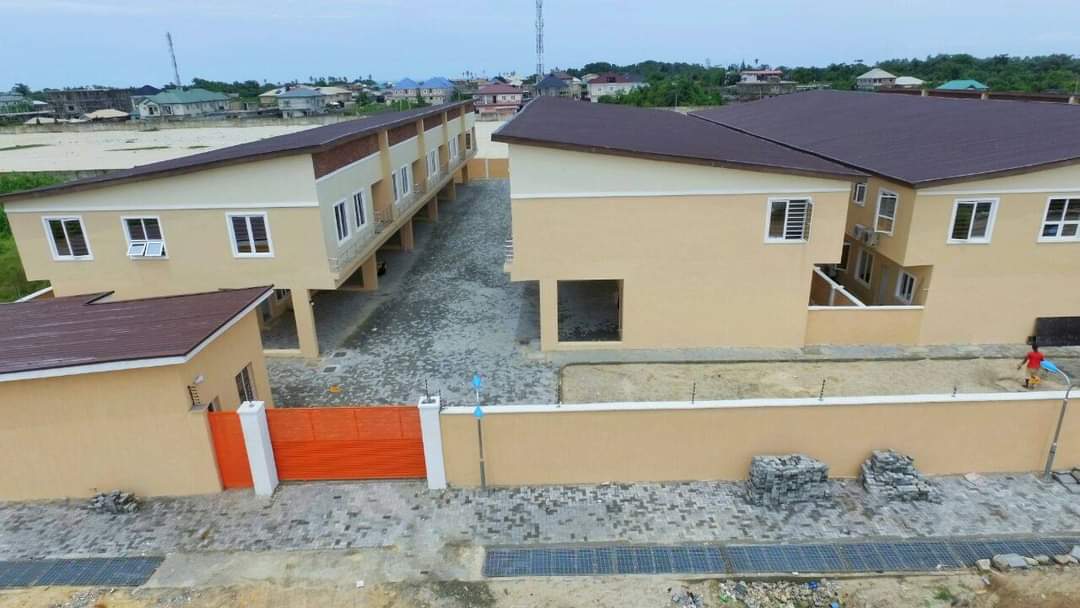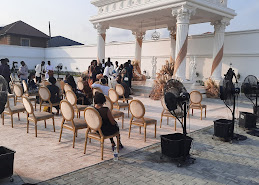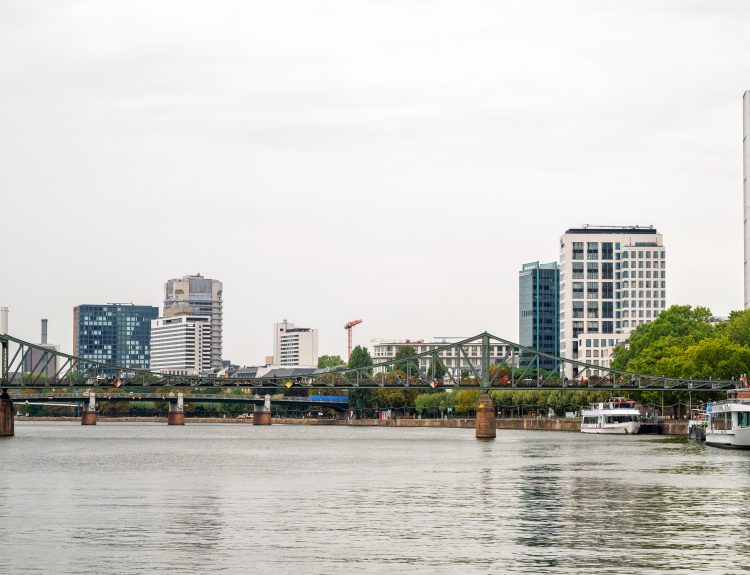House rent in Lagos is important to consider before moving or visiting Lagos. this topic is valuable to us as our mission is to be at the forefront of giving you all the guidance you need to tour and live in Lagos.
In this post, we will break down the factors that affect the cost of house rent in Lagos, and provide insight into average rental prices across various parts of Lagos.
Nigeria’s largest city is known for its bustling lifestyle, economic opportunities, and high population density. However, accommodation should be considered when moving to Lagos as it can be expensive, especially in upscale neighborhoods.
Whether you’re moving to Lagos for work, school, or just a change of environment, understanding the cost of house rent in different areas is crucial for budgeting. Let’s get deeper into it.
Factors That Affect the Cost of House Rent in Lagos
The cost of house rent in Lagos is one crucial factor that determines the cost of living in Lagos and is highly dependent on several factors such as the location, type of accommodation, and the facilities available. Below are how these factors affect the cost of house Rent in Lagos
1. Location
Location is the biggest factor influencing the cost of house rent in Lagos. Areas closer to the commercial and business hubs tend to have higher rent prices. For instance, places like Ikoyi, Victoria Island, and Lekki Phase 1 are considered prime locations, as such, their rent prices are on the high side. On the other hand, locations farther from these business hubs, like Iyana Ipaja, Agege, and Ikorodu, are generally more affordable. Prime locations like Ikoyi can cost millions of naira annually for apartments, while in suburban areas, you might pay significantly less for the same kind of apartment.
2. Accommodation Type
The type of house or apartment also plays a key role in determining the house rent you pay In Lagos, you’ll find different housing options.
- Self-contained apartments (one-room apartments with a bathroom and kitchen)
- Mini flats (one-bedroom apartments with a living room)
- 2-bedroom flats
- 3-bedroom flats
- Duplexes and standalone houses Self-contained apartments are generally the cheapest, while duplexes and standalone houses, especially in upscale neighborhoods, can cost a fortune.
3. Facilities And Infrastructure
The cost of house rent in Lagos is influenced by amenities in the house and its neighborhood. Houses in estates with constant power supply, good road networks, water supply, and security are usually more expensive. Some estates also offer extra features like swimming pools, gyms, and parks, which can drive up rent costs.
4. Accessibility
Accessibility greatly affects house rent in Lagos. Areas with good roads and close to markets, schools, and work centers often have higher rent. People prefer living in places where they can easily reach their jobs and essential services.
For instance, neighborhoods like Victoria Island, Lekki, and Ikeja, which are well-connected and near offices or malls, tend to have more expensive rent. In contrast, less accessible areas with poor road networks or fewer transport options usually have lower rent. The easier it is to access important places, the higher the demand and rent prices in that location.
5. Size Of The Property
In Lagos, the size of a property plays a big role in determining rent costs. Larger homes or apartments with more rooms usually cost more because they offer more space. Tenants pay higher rent for bigger properties, especially in popular areas like Victoria Island or Lekki.
Smaller apartments, like one-bedroom or studio flats, are cheaper because they take up less space. Landlords charge based on square footage, so the bigger the property, the higher the rent. People often choose a size that fits their budget and family needs, which influences the demand for different property sizes.
Average Cost of HouseRent in Lagos by Location
Here’s a breakdown of the average rent prices for different types of apartments across various locations in Lagos:
- Ikoyi Ikoyi is one of the most expensive places to live in Lagos. It’s home to expatriates, top government officials, and wealthy Nigerians. The cost of rent in Ikoyi can be as high as ₦8 million per year for a 3-bedroom flat. For a 2-bedroom flat, you might pay around ₦5 million annually, while a one-bedroom apartment can cost between ₦3 million and ₦4 million.
- Victoria Island (VI) Like Ikoyi, Victoria Island is another high-end location with expensive rent. Rent for a 3-bedroom flat in VI ranges from ₦5 million to ₦8 million per year, depending on the specific area and available facilities. A 2-bedroom flat could cost ₦3.5 million to ₦4.5 million annually, while a one-bedroom apartment may cost around ₦2 million to ₦3 million.
- Lekki Phase 1 Lekki Phase 1 is popular among young professionals and middle-class Nigerians. While it’s slightly more affordable than Ikoyi and VI, the rent here is still on the high side. A 3-bedroom flat can cost between ₦3 million and ₦5 million annually. A 2-bedroom flat might go for ₦2 million to ₦3 million, while a one-bedroom flat costs between ₦1.5 million and ₦2 million per year.
- Surulere Surulere is a popular area for both middle-class and working-class individuals. It is more affordable compared to the high-end areas. Rent for a 3-bedroom flat in Surulere ranges from ₦1.5 million to ₦2.5 million annually, while a 2-bedroom flat can cost ₦800,000 to ₦1.5 million per year. A one-bedroom apartment in Surulere can be rented for ₦500,000 to ₦800,000 annually.
- Yaba Yaba is known for its tech ecosystem and student population due to the presence of the University of Lagos. It’s an affordable option for young professionals and students. A 3-bedroom flat in Yaba can be rented for between ₦1.5 million and ₦2.5 million per year. A 2-bedroom flat may cost ₦1 million to ₦1.8 million, while a one-bedroom apartment typically goes for ₦600,000 to ₦1 million annually.
- Agege and Iyana Ipaja If you’re on a budget, Agege and Iyana Ipaja are more affordable options. The rent for a 3-bedroom flat in these areas ranges from ₦700,000 to ₦1.2 million per year. A 2-bedroom flat can be rented for ₦400,000 to ₦800,000 annually, while a self-contained apartment might cost between ₦200,000 and ₦400,000 per year.
- Ikorodu Ikorodu is one of the most affordable places to rent a house in Lagos. It’s a great option for people who work remotely or don’t mind commuting. A 3-bedroom flat in Ikorodu costs between ₦500,000 and ₦1 million per year, a 2-bedroom flat ranges from ₦300,000 to ₦600,000, and a self-contained apartment can be rented
All Prices are approximations sourced from Jiji.ng.
What To Do Before Paying House Rent in Lagos
Before paying for house rent in Lagos, inspect the house to ensure it meets your needs. Check the environment and security of the area. Verify the landlord’s ownership to avoid fraud, and confirm if the rent includes extra costs like service charges.
Also, ask neighbors about the area’s water supply, electricity, and noise levels. Read and understand the tenancy agreement, ensuring the terms are clear.
Here is a comprehensive article about what to do before paying for a house in Lagos. check it out and save yourself unnecessary stress.
Conclusion
The cost of house rent in Lagos depends on several important factors. The type of accommodation you choose is one key factor. Whether you’re renting a self-contained apartment, a flat, or a bigger house, each option has its price range. Smaller spaces like self-contained apartments are usually more affordable, while larger homes, such as duplexes or houses, tend to cost more.
Another factor that affects rent is the facilities and amenities available in the area. Homes located in places with reliable electricity, water supply, security, and good road networks usually cost more. Additionally, estates that offer extra facilities like swimming pools, gyms, and parks also tend to have higher rents.
For those looking to live in more affordable places, it’s possible to find good housing in areas where the rent is not too high. Some areas have cheaper rents due to the distance from commercial centers or the absence of premium amenities. However, these places still offer comfortable living spaces for those willing to commute or make other adjustments.
In Lagos, it’s important to choose a home that fits your budget while also considering your comfort and lifestyle. Whether you’re a young professional, a student, or someone relocating for work, there are various housing options available to suit different needs. With a bit of research and careful planning, you can find a suitable place to live that meets your expectations and financial situation.






